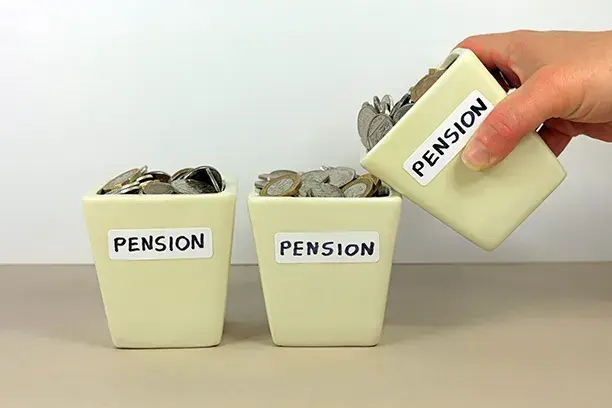Introduction
Rarely has a budget created so much media attention.
It is the Labour Party and Rachel Reeves’ first budget in power.
Leaving so long between announcing the date and delivering the budget may have been a mistake by the new Chancellor.
It has fuelled weeks of speculation about what might change, allowing the media to take control of the narrative.
The political background
Labour’s overtly gloomy public outlook was not unreasonably interpreted as a sign of pain to come, in the form of tax rises
or services cuts, or both. Whilst inflation has been cooling, prices remain far higher than ever before and almost everyone
in Britain will have felt this in their pocket over the past 12 months.
Labour’s firmly stated position is that economic growth is the solution to all problems. Reeves will need to start evidencing
that growth is achievable fast. They have lost much of the political capital they built up before the election and are already
being judged on their own results, not what happened in government when they were in opposition. Given the big tax
haul and the major investment into public infrastructure will come in the first half of Labour’s five year term, there will be
enormous pressure to demonstrate that this strategy has paid off in the second half of their term.
Despite a huge majority in Parliament, Labour’s leadership have attracted the wrong headlines early into their tenure. The
removal of the PM’s Chief of Staff, Sue Gray, may be addressing a symptom rather than the cause of the problems they
have faced since coming into power, but they will be desperate to draw a line under the negative attention and move on.
The recent investment conference attracted £63bn of private sector pledges for investment into the British economy. It
also attracted gossip around Michelin quality food and Elton John providing entertainment.
Labour committed to two main fiscal rules in its manifesto. The Party described these as ‘non-negotiable’. They require
that:
• the current budget must move into balance, so that day-to-day costs are met by revenues; and
• debt must be falling as a share of the economy by the fifth year of the forecast.
Whilst they do not want to deviate from the rules, there was scope for them to change some of the underlying definitions,
to free up more ‘headroom’ and allow the Chancellor more room for investment.
The government has now changed the definition so that headline debt should now more easily fall by the fifth year of the
forecast by including rather than excluding the Bank of England and other similar assets.
This might seem like gaming the system but tweaks to these definitions have been supported by many people including the
former Governor of the Bank of England, Mervyn King.
In addition to fiscal rules, manifesto pledges have hemmed the new Chancellor in. Having promised no increases to ‘taxes
on working people’ they are unable to adjust income tax, National Insurance, corporation tax or VAT. There has inevitably
been a great deal of focus on other taxes such as pensions relief, Capital Gains Tax and Inheritance Tax, as alternative
options. They all have problems in application, and with the majority of the £40bn in new taxes raised coming from
employers NI, they will be under attack for misleading the public for many months to come. To be clear, their manifesto
made no promises about not raising employer NI but relying on the small print will always invite criticism and they will
have known this.
The economic background
There is little doubt that Labour have inherited an extremely difficult situation. How much of this genuinely came as a
surprise to them is more open to debate. At the end of July, Rachel Reeves announced there was a £22bn hole in the
budget, which had not been disclosed by the previous Conservative government. This was something she would repeat
several times during her budget speech, for reasons we will discuss later. There was little revealed at the time about how
this hole will be filled other than the curtailment of the winter fuel allowance. This set an immediate tone of ‘austerity’
doubled with expectations of higher taxes. The three-month gap between the statement and the budget was described by
former Bank of England chief economist and austerity critic, Andy Haldane, as “unnecessary and probably economically
unhelpful.”
There has been some positive news recently.
Inflation has been cooling and appears to be under control. September’s CPI inflation figure of 1.7% was well under the
2% target and the lowest for three years.
As a result of this, and previous news on slowing wage earnings, there was a hard expectation from the market and media
that the Bank of England in recent weeks will cut interest rates further on 7th November. This is now an international trend
with the European Central Bank and the Fed now on a similar path to more regular cuts.
The Office for Budget Responsibility’sOBR’s response to the budget sets this back a little. The OBR now predicts the UK
economy to grow by 1.1% in 2024, 2.0% in 2025, 1.8% in 2026, 1.5% in 2027, 1.5% in 2028, and 1.6% in 2029. This is higher
than it predicted after the April budget for 2024 and 2025 but lower for the following three years. The figures for April were
0.8% in 2024 and 1.9% in 2025. This will be followed by growth of 2% in 2026, 1.8% in 2027 and 1.7% in 2028.
Additionally, the OBR expects the budget to push inflation up slightly in 2025 to around 2.6% before falling back in line with
the Bank of England’s 2% target. This could have a short-term impact on interest rates, which may drop more gradually as
a result.
This is a hugely important issue for the millions of people with mortgage terms to rebroke. Reducing interest rates could
stimulate business borrowing, consumption and ultimately the growth Labour needs. If inflation creeps back up for more
than a few months, however, the nation’s patience will wear ever more thin.
Tensions around and between China, the US, Russia and the Middle East persist and provide a destabilising backdrop.
Starmer and Reeves are making a play for investment into the UK with a message of stability and calm, but they cannot
control global politics.
The political language used, the overly long build up, and the frenzied media speculation set an expectation that there
will be some very unhappy people after this budget has been announced, and the media did not miss the opportunity
to convert this into clickbait. Many people will have made poor financial decisions based on speculation alone, such as
taking their tax-free cash early in the mistaken belief this allowance would be ended.
It may well have been an anti-climax for many, with business owners and farmers the most likely to feel immediately
aggrieved.
The speech
Opening remarks
After a Prime Minister’s question time which featured a convivial exchange between Keir Starmer and outgoing Leader of
the Opposition and former Prime Minister, Rishi Sunak, Rachel Reeves took to the dispatch box. The mood soon switched
to a more traditional confrontational tone, and Sunak did not hold back with his final front bench performance when his
time came to respond.
She continued her attack on the previous government and the ‘fiscal black hole’ it had left her. Given the OBR projections
which showed mixed results compared to the previous Conservative budget, she needed to attack the legitimacy of the
figures which sat behind those projections.
The Chancellor’s statement was accompanied by forecasts from the Office for Budget Responsibility (OBR), which
predicts that the economy will grow by 1.1% in 2024 and 2.0% in 2025. This will be followed by growth of 1.8% in 2026,
1.5% in 2027 and 1.7% in 2028.
We’ve picked out the main tax changes in the tables below. For a full summary of all of them visit this page.
Personal taxation and allowances
| What | Capital Gains Tax to increase to 18% and 24% |
|---|---|
| When |
30 October 2024 |
| Comment |
The lower and higher main rates of Capital Gains Tax will increase to 18% and 24% respectively for
|
| What | Business Asset Disposal Relief and Investors’ Relief rate increased |
|---|---|
| When | 6 April 2025 for rate and 30 October 2024 for Investors’ Relief lifetime limit |
| Comment |
The rate for Business Asset Disposal Relief and Investors’ Relief will increase to 14% from 6 April 2025,
|
| What | Winter Fuel Allowance to be means tested |
|---|---|
| When | Winter 2024 |
| Comment | The Winter Fuel Payment will be target to those in receipt of Pension Credit or other similar income-related benefits. |
| What | Stamp Duty on second homes and buy-to-let to go up to 5% |
|---|---|
| When | 31 October 2024 |
| Comment |
The Higher Rates for Additional Dwellings (HRAD) surcharge on Stamp Duty Land Tax (SDLT) will be increased from 3% to 5%. This is intended to assist first time buyers and anyone buying their primary residence given the shortage of available homes. |
| What | Non-domicile tax regime to be abolished |
|---|---|
| When | April 6th 2025 |
| Comment |
The government will legislate to abolish the remittance basis of taxation for non-UK domiciled
|
Pensions
| What | Pension funds and death benefits subject to IHT |
|---|---|
| When | 6 April 2027, subject to consultation |
| Comment |
This will bring unused pension funds and death benefits from a pension into a person’s estate for
|
| What | Reduced agricultural property relief and business property relief |
|---|---|
| When | 6 April 2026 |
| Comment |
The current 100% rates of IHT relief will only apply to the first £1 million of combined agricultural and
|
| What | Reduced relief on shareholdings on the Alternative Investment Market |
|---|---|
| When | 6 April 2026 |
| Comment | The current rates of IHT relief will be reduced to 50% for AIM shares. |
| What | IHT nil rate band frozen to 2030 |
|---|---|
| When | Ongoing to April 2030 |
| Comment |
Whilst the Chancellor did not extend the frozen personal allowance for income tax purposes beyond
|
| What | Pensions triple lock to be maintained and will increase the state pension |
|---|---|
| When | April 2025 |
| Comment | The State Pension will increase by 4.1% next year in line with the highest of the three measures used. |
| What | British ISA ditched |
|---|---|
| When | Immediately |
| Comment | The idea of a British ISA has been scrapped. Industry feedback on the concept was largely negative and it had too many practical problems to be progressed |
Business investment and taxation
| What | Employer National Insurance increased, threshold lowered |
|---|---|
| When | April 2025 |
| Comment |
Employer National Insurance to be increased by 1.2% from 13.8% to 15%.
|
| What | The Employment Allowance will increase |
|---|---|
| When | April 2025 |
| Comment |
The Employment Allowance will increase from £5,000 to £10,500, for those eligible, and the £100,000
|
| What | National Living Wage will go up by 6.7% |
|---|---|
| When | 6 April 2025 |
| Comment |
The minimum wage will increase by 6.7% to £12.21 an hour from April. For 18 - 20 year-olds it will
|
| What | Enterprise Investment Schemes and Venture Capital Trust schemes Extended |
|---|---|
| When | Ongoing to 2035 |
| Comment |
EIS and VCTs will be allowed to continue for another 10 years to 2035. These extensions are designed |
| What | Fuel Duty rates frozen |
|---|---|
| When | To 22 March 2026 |
| Comment |
This will be a relief to businesses as much as individuals. There was an expectation this would be used
|
| What | Windfall tax on the profits of energy firms extended |
|---|---|
| When | 1 November 2024 |
| Comment |
Windfall tax on the profits of energy firms extended until 2030 and increased to 38%.
|
| What | Retail, hospitality and leisure relief on business rates |
|---|---|
| When | 6 April 2025 |
| Comment |
For 2025-26, eligible retail, hospitality and leisure (RHL) properties in England will receive 40% relief |
| What | Reform to Taxation of Employee Ownership Trusts and Employee Benefit Trusts |
|---|---|
| When | Immediately |
| Comment |
The government is reforming the taxation of Employee Ownership Trusts and Employee Benefit Trusts |
| What | Carried interest tax increased to 32% |
|---|---|
| When | 6 April 2025 |
| Comment |
This is a change to the performance fees that private equity fund managers make from asset sales to
|
| What | VAT applied to private school fees, and charitable rate relief removed from their business rates |
|---|---|
| When | 1 January for VAT and April 2025 for charitable rate relief |
| Comment |
As promised in their manifesto the government will apply VAT to private school fees, including
|
Other announcements
| What | Air Passenger Duty for flights to go up |
|---|---|
| When | April 2026 |
| Comment |
The increase equates to £1 more for those taking domestic flights in economy class, £2 more for
|
| What | Alcohol duty cut on draught alcohol |
|---|---|
| When | 1 February 2025 |
| Comment | Alcohol duty will be cut on draught alcohol to help pubs. Rates on non-draught products will increase in line with RPI from February 2025. The cut is expected to save 1p on an average pint. |
| What | Vaping Products Duty |
|---|---|
| When | From October 2026 |
| Comment | A flat-rate excise duty on all vaping liquid will be introduced from 1 October 2026 at £2.20 per 10ml vaping liquid. |
| What | Soft Drinks Levy to increase |
|---|---|
| When | 1 April 2025 |
| Comment | The Soft Drinks Industry Levy will rise with inflation, and increase in line with CPI each year going forward, for the next five years. |
Conclusion and reactions
Our Thoughts
With little room for the Chancellor to manoeuvre, and the main announcement being leaked beforehand, there was little in
this Budget for investors to be excited or concerned about.
Branding existing products as ‘British’ is already being perceived by much of the financial services sector as a political
gimmick and unlikely to add significant benefit to the vast majority of investors. That said, we should always look to use
any allowances available.
Estate Planning Issues
The headlines will focus on the government’s decision to charge inheritance tax on any unused pension funds or death
benefits. This is only part of the story, and there are a number of changes in the budget which makes a review of potential
inheritance tax liabilities more important than ever. These measures are forecast to bring in over £2.2 bn in tax by 2030.
Pensions to come under IHT:
We should first acknowledge that in principle, we agree with the government that pensions are for spending. They are
primarily a tool we use to accumulate money as tax efficiently as possible and then convert it to income for use in
retirement or semi-retirement. The government believes there are only 8% of estates which will be affected each year by
moving any unused pension funds or death benefits into the inheritance tax regime. Those people seeking professional
advice from a business such as ours are more likely to be within that 8% than the wider UK population.
There is some time to work through these issues as the changes are not due until 2027 and there will be a consultation
process to work through. This process might not change the end result but it will allow us to gain greater insight into the
details and what alternative options are available.
We also have a concern about paying tax twice on the same amount. A pension fund left to a beneficiary will be faced with
a potential IHT liability, but if the person who dies is over 75, the recipient of the income from that pension would also have
to pay income tax. A double tax charge seems overly punitive.
Nil rate bands frozen to 2030:
This almost slipped by unnoticed, but it has remained at £325,000 since 2009. If it had been uprated with inflation it would
be over £500, 000 by 2028 when the current freeze was due to end.
Reliefs for businesses and landowners cut:
Agricultural and business property relief (BPR) combined, saved wealthy families from paying IHT on around £4.4bn
of assets in 2021/22. BPR alone was worth £2.9 billion and used by 4,170 estates. Farmers, and other family-owned
businesses, will be under increased pressure to sell assets or borrow to fund hefty IHT bills. They might just look for an exit
now.
Aim relief cut:
The rate of relief available for ‘unquoted’ shares listed on smaller markets like AIM has been cut to 50%, which means a
20% rate of tax assuming all other allowances are used up. This will affect around 0.3% of estates. The AIM market is worth
around £70 billion, and shares can currently be passed on free of inheritance tax if they are held for at least two years
before death. There were fears that the relief could be abolished entirely so the 50% cut might be viewed by those affected
as acceptable.
All of these changes combined mean that IHT is a bigger issue than ever before. Sadly, it will ruin some carefully
constructed estate plans where they use their pension or one or a combination of these reliefs or allowances to stay under
the IHT threshold. However, there are still plenty of available solutions to this problem.
It will be important for us to size up the problem with any clients who are affected.
Business Owner Issues
The increase in employer NI will come as a blow to most small and medium sized businesses, and even the OBR believe
that it will change employer behaviour to the extent that the £25bn tax revenue forecast is likely to shrink considerably
once employers cut back on wages and recruitment, which will ultimately have an impact on the economy and other taxes
such as VAT through reduced spending.
Shareholders will also be considering the implications of the CGT rises, which kicked in immediately. An increase to 24%
is unlikely to materially put off the majority of business owners from selling some or all shares in their business, but the
increase in the rate of Business Asset Disposal Relief in April next year might force a few decisions this side of the new
financial year.
Many will already have thought about a sale due to the rumours of a much higher CGT rate rise or the loss of Business
Asset Disposal Relief. Whilst there may be less urgency to sell now, some of the work will have been done and a number
will no doubt want to carry the process through to conclusion. Doubly so if they will lose agricultural or business property
relief.
Investment Issues
It is worth noting that the allowances and reliefs available for the core investment products that our clients use remain in
place.
ISA allowances and pension contributions remain intact. The dreaded Lifetime Allowance has not been resurrected, and
rumours of the removal of pension tax-free cash or radical overhaul of pension relief were just nothing more than rumours.
Every budget announcement seems to be preceded by unhelpful gossip about pensions, and it is easy to question the
motives of some commentators who enjoy the attention their alarmist speculation makes.
In addition to the estate planning issues already highlighted we will continue to review any opportunity we can find to
make your portfolio more efficient. Work on inheritance tax mitigation may well involve changes to your financial plan so
this gives us an opportunity to make any adjustments we see as helpful at that time. We do not see anything in this budget
which causes any immediate concern.
Wider Reaction to the Speech
It was a lengthy speech and Rishi Sunak was not the only person with his head down trying to look into the details whilst
the Chancellor talked.
The OBR response was mixed. We have already noted their concerns about the impact on growth in 2027 and 2028,
although the Chancellor argues that her investments are much longer term so a 10-year time horizon is more realistic. She
might not get that long, as a lack of delivery approaching the next General Election after so much spending will not work in
her or the Prime Minister’s favour.
The market reaction was positive on budget day and then it slumped a little the day after. It is unwise to read too much
into the immediate reaction other than to say there is no immediate crisis, more an expectation that interest rate cuts may
be more gradual as inflation is expected to hover above the 2% Bank of England target for a little longer than expected.
Notably the AIM market rallied, a clear indication that AIM shareholders had expected far worse than a 50% cut in their
reliefs. Pub stocks were up, buoyed by the cut to draft beer duty.
The Confederation of British Industry, representing business, said ‘in the short term, this is a tough Budget for businesses,
given the increase in National Insurance Contributions and other employer cost base increases. These increase the
burden on business, limit the private sector’s ability to invest, ultimately make hiring more expensive, and restrict the
capacity to offer pay rises.
IFS Director Paul Johnson said “In broad brush strokes, that was the Budget we had been led to expect: big tax rises, more
cash for public services, more borrowing and more investment. Look beyond the headline numbers, and there are two big
judgements – one could say gambles – that the Chancellor seems to be making.
The first gamble is that a big cash injection for public services over the next two years will be enough to turn performance
around, and that many of the temporary spending pressures won’t persist… the second gamble [is] that this extra
borrowing will be worthwhile. Under pre-election plans we were set to borrow an average of £59 billion per year over the
next four years. We now expect to borrow an average of £85 billion. The hope is that the benefits – from more funding for
public services in the next couple of years, and from more public investment throughout the parliament – will more than
offset the costs.”
The Economist was damning in its leader on the budget ‘She had a mandate to fix public services, a huge parliamentary
majority and four months to work out how to raise taxes and encourage growth. In the end, she offered an odd mix of
eye-popping numbers and small-bore thinking. She has taken steps to fix Britain’s crumbling public services, chronic
underinvestment and fairy-tale fiscal forecasts. But she has lost her best chance at reform.’
Conclusion
The Chancellor was always likely to upset the commentariat with the budget whichever direction she took.
She has raised taxes considerably, which will upset the right. She has not introduced anything radical such as a wealth tax,
which has upset the left.
We are left with a number of tax increases, and the ongoing impact of fiscal drag, but nothing like the problems which had
been pitched to us by the press with talk of a 39% rate for CGT and the end of pensions tax relief.
What Rachel Reeves has done is double down on her absolute commitment to growing the economy, and this seems like
something of a gamble. She shares some of that risk as she will most likely be out of a job herself if it doesn’t work. The
world can be an unpredictable place and it is all highly interconnected. The performance of the US economy could well be
a determinant of our own. Whether we lose or gain from this we don’t yet know.
We have no real control over big politics or global economics, so we will continue to do what we do best and control the
things we can influence. That means maintaining our discipline and rigour over your financial plan and your investments to
ensure they dover the best outcomes for you we can possibly achieve.
The content of this summary is intended for general information purposes only. The content should not be relied upon in its entirety and shall not be deemed to be or constitute advice.
The information contained within this article is based on our understanding of legislation, whether proposed or in force, and market practice at the time of writing. Levels, bases and reliefs from taxation may be subject to change.
While we believe this interpretation to be correct, it cannot be guaranteed and we cannot accept any responsibility for any action taken or refrained from being taken as a result of the information contained within this summary. Please obtain professional advice before entering into or altering any new or existing arrangement.
The above article is intended for information purposes only and should not be taken as advice.
The value of investment units can fall as well as rise, and you may not get back all of your original investment.
The tax treatment is dependent on individual circumstances and may be subject to change in future.
A pension is a long term investment. The fund value may fluctuate and can go down. Your eventual income may depend upon
the size of the fund at retirement, future interest rates and tax legislation.
Advice on Inheritance Tax and Tax Planning are not regulated by the Financial Conduct Authority.










